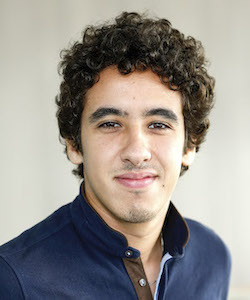
FNS Senior Researcher
University of Lausanne (UNIL) and Lausanne University Hospital (CHUV)
Affiliations
University of Lausanne, CIBM, Center for Biomedical Imaging
Lausanne University Hospital, Radiology Department (CHUV)
Contact
Email: hamza (dot) kebiri (at) unil (dot) ch & hamza (dot) kebiri (at) chuv (dot) ch
Phone: +41 21 314 15 37
Postal address: Centre de Recherche en Radiologie (BIO02), Rue du Bugnon 46, CH-1011 Lausanne
Office: Route de la Corniche 10, 1st floor, CH-1010 Lausanne
Twitter/X: https://x.com/HamzaKebiri
LinkedIn: https://www.linkedin.com/in/hamza-kebiri-a72b3260
Google Scholar: https://scholar.google.com/citations?user=EYkmqioAAAAJ&hl
Research Interests
Hamza’s main research interest encompasses neuroscience, brain reconstruction, machine learning and its applications to medical neuroimaging. His current works involve brain reconstruction of developing brains using diffusion MRI and translational aspects between high and low field MRI and between pediatric populations.
Short Bio
Hamza Kebiri received a bachelor and master degree in Communication Systems from the Ecole Polytechnique Fédérale de Lausanne (EPFL) in Switzerland, and a master degree in Cognitive Science (Neuroinformatics & Neuroscience) from Osnabrück University, in Germany.
He has worked in a variety of machine learning projects including his EPFL master thesis in fraud detection on an online banking system, and a big data analysis of health risks from six hospitals.
In 2017, he joined the Connectomics department of the Max Planck Institute for Brain Research in Frankfurt. Under the direction of Prof. Moritz Helmstaedter, he focused on the segmentation and reconstruction of multibeam scanning electron microscopy (mSEM) data using deep neural networks.
Between 2019 and 2023, he performed a PhD thesis in the Life Science program of the Lausanne University under the supervision of Dr. Meritxell Bach Cuadra, supported by the Swiss National Science Foundation (SNSF) project 182602. In his PhD project, he worked on super-resolution reconstruction of fetal and newborn brains from diffusion magnetic resonance imaging (dMRI) data.
In 2022, he was awarded an FNS Mobility Grant to work as a visiting scholar on fetal and newborn projects in the IMAGINE group in Boston Children’s Hospital & Harvard Medical School in USA with Prof. Ali Gholipour and Prof. Davood Karimi, with whom the collaboration is still ongoing.
Dr. Kebiri started as senior FNS researcher in the project aiming to tackle domain shifts in the reconstruction, segmentation and quantitative mappings between newborn and fetal populations and between high (1.5T & 3T) and low (0.55T) field strengths.
